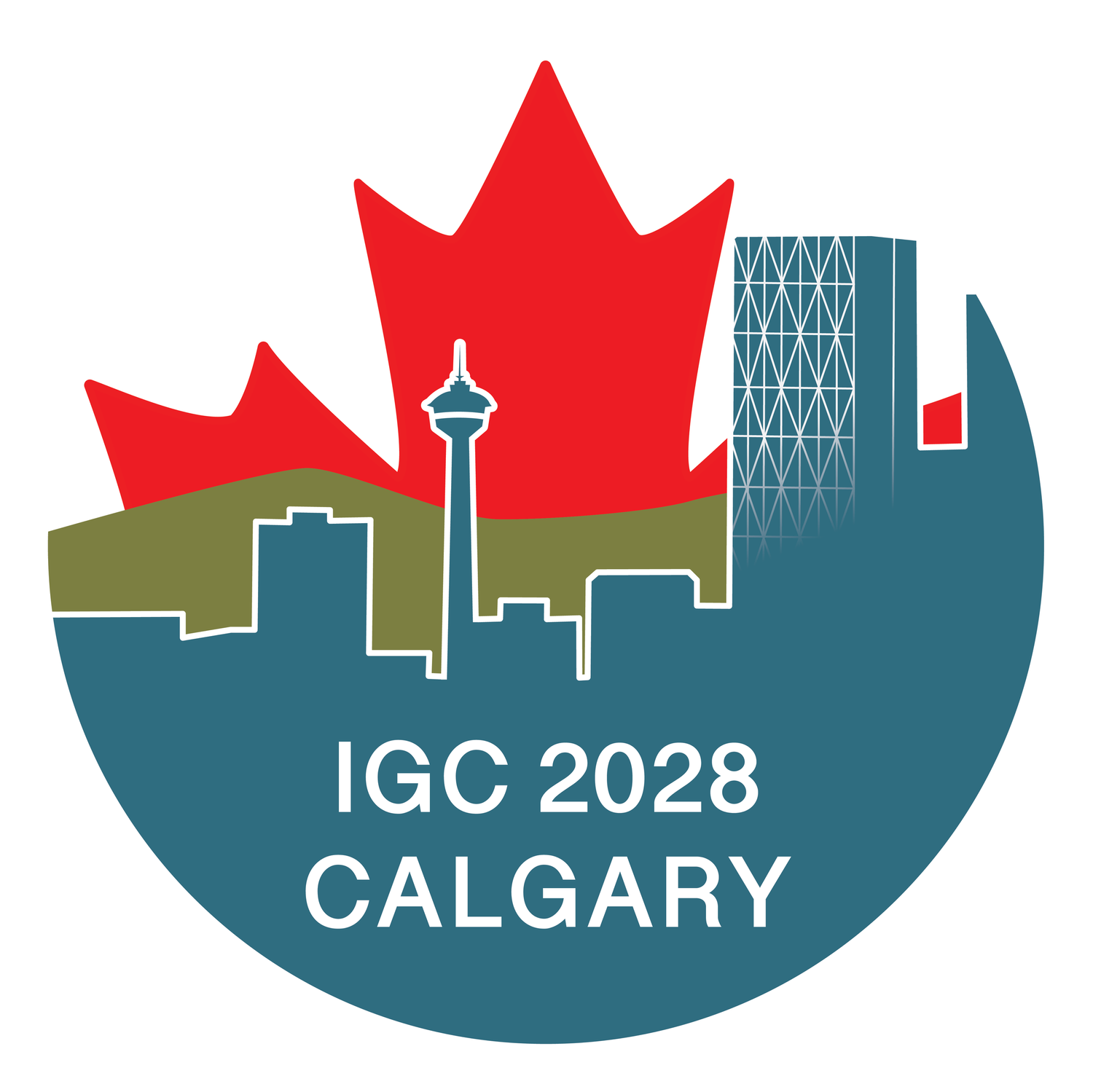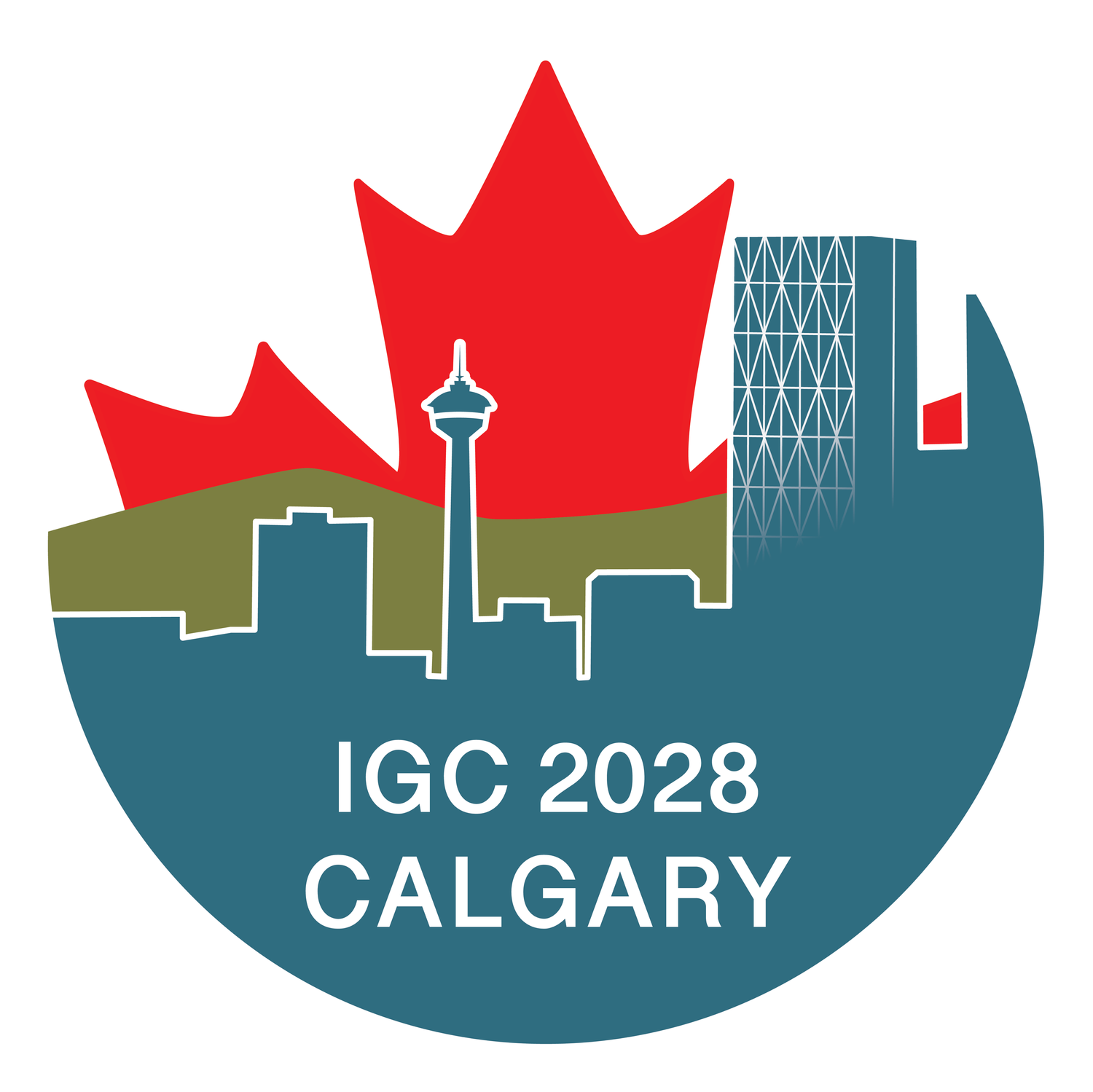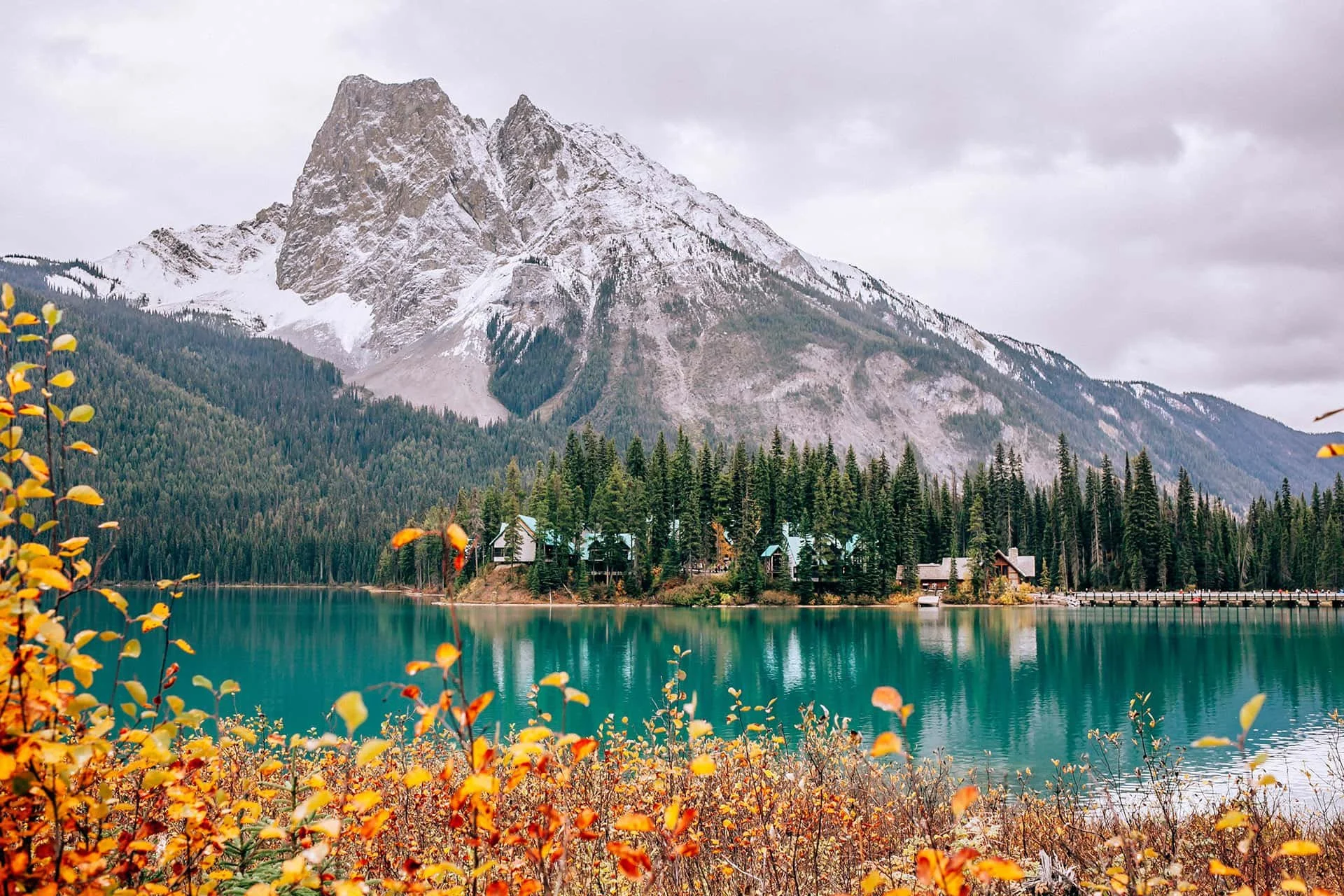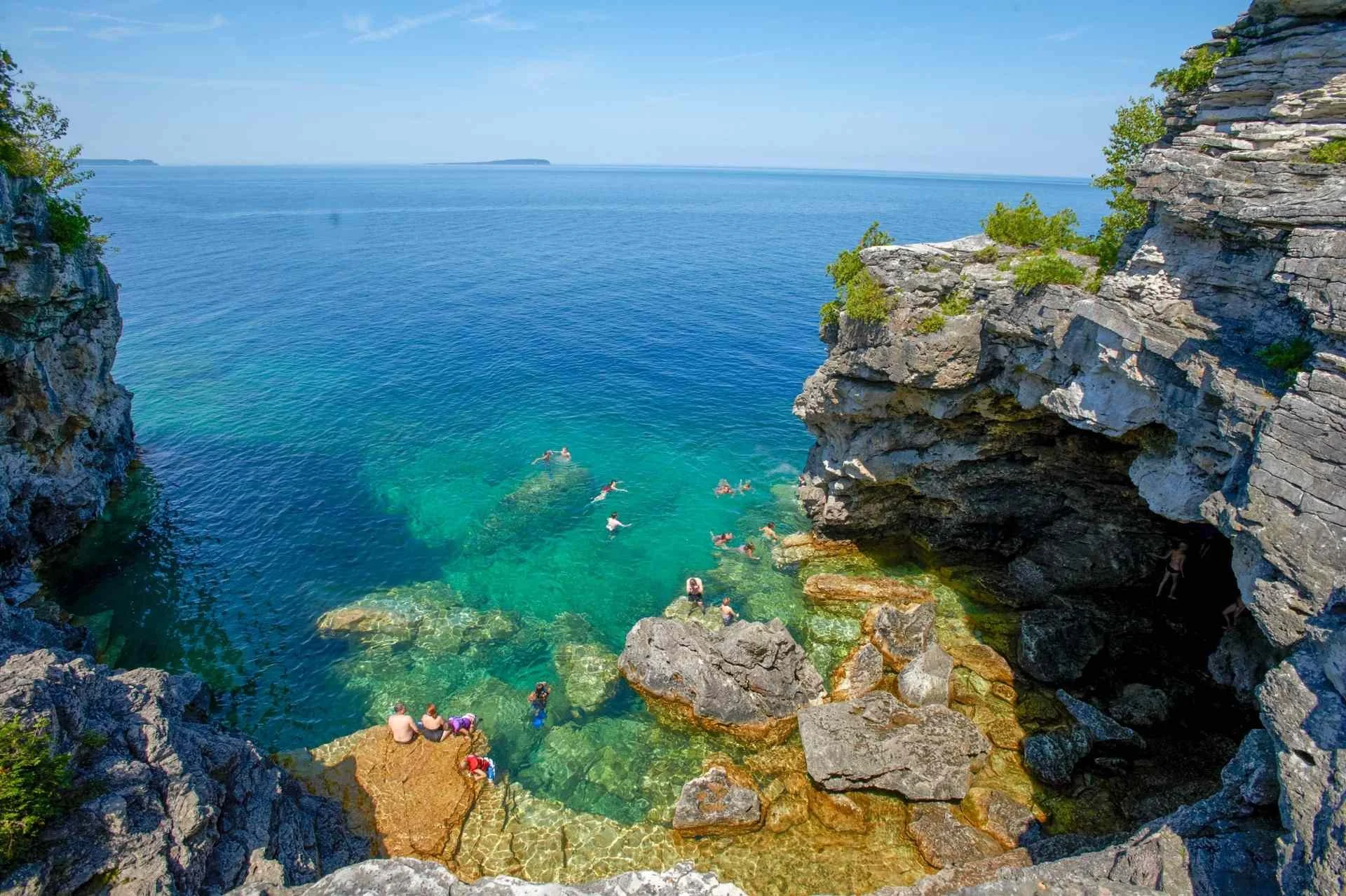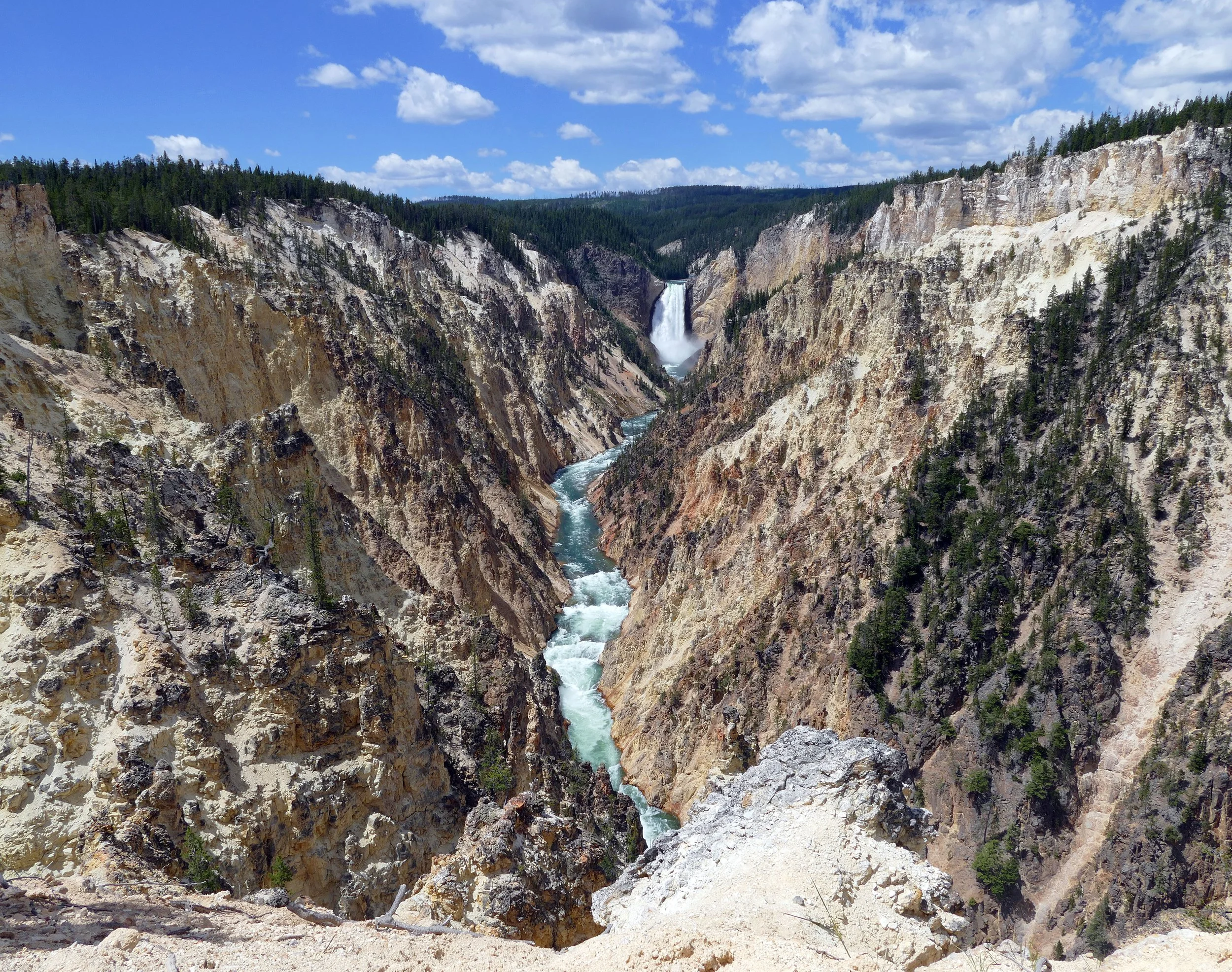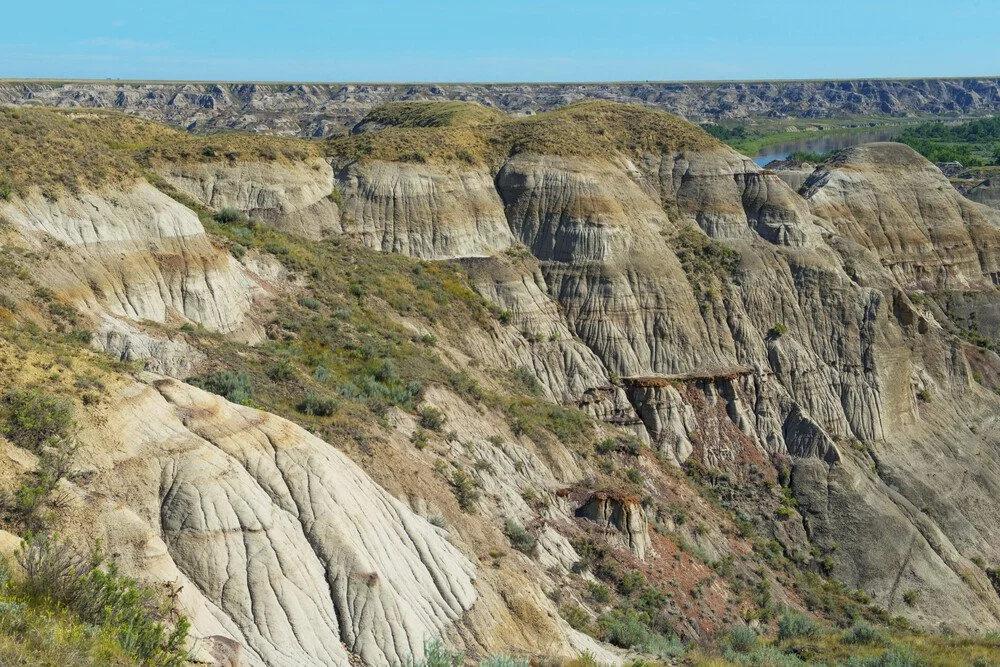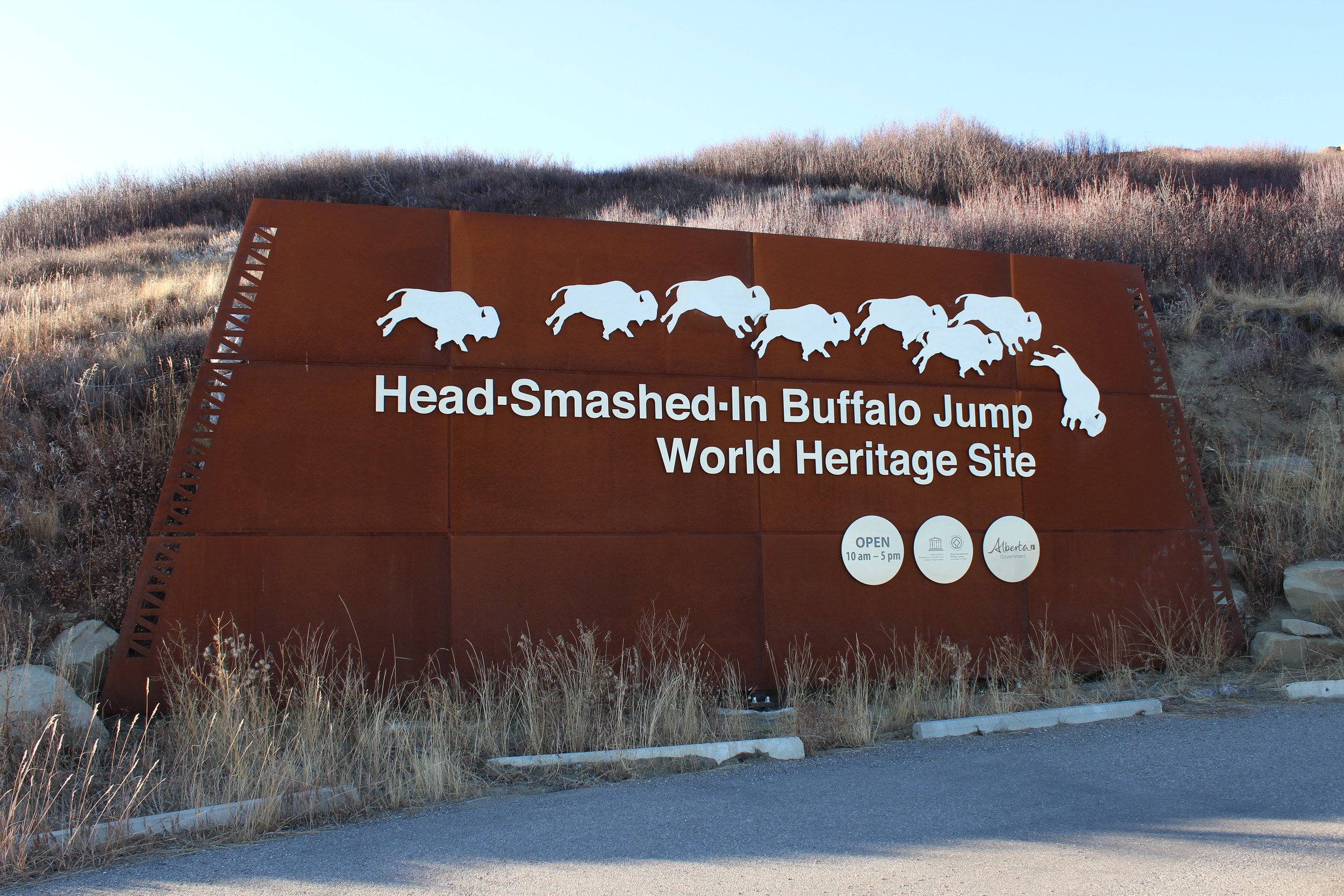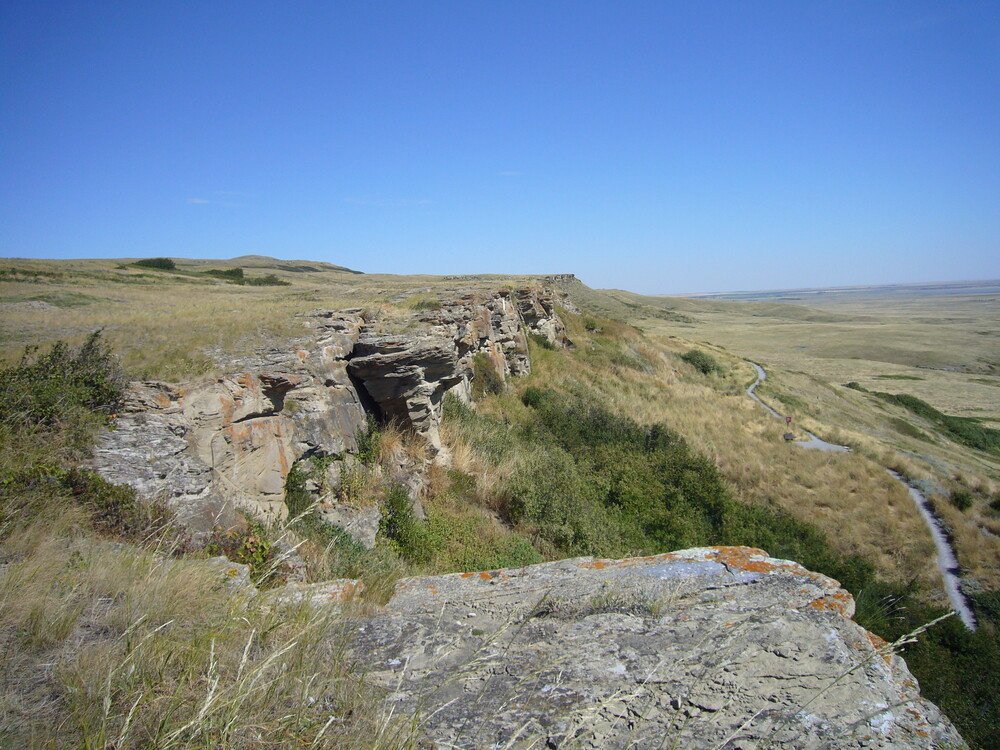
Scientific Programme
Geosciences for Humanity inspires every aspect of Canada’s IGC 2028 bid proposal.
We welcome suggestions from the IUGS community for additional scientific sessions to be included at IGC 2028. Here we propose indicative sessions that are intended to include representation from all components of IUGS while addressing some of the critical challenges facing humanity today.
If you have any suggestions, please email info@igc2028canada.org.
The 38th IGC in 2028 in Calgary would focus on over 60 theme topics, symposia, and special sessions that highlight Canada’s special geological attributes, while also embracing topics that are distinctive of North America and relevant to the international geological community.
General Sessions
(representing all components of the geosciences)
Anthropocene – Quo Vadis?
Big Data and Artificial Intelligence in Geoscience
Biogeochemical Cycles
Coastal, Marine and Lacustrine Geosciences
Deep-Time Digital Earth: IUGS DDE Sessions
Earth History and Stratigraphy
Engineering Geology and Geomechanics
Environmental Geosciences
Forensic Geology and Medical Geology
Geobiology
Geoenergy Systems: Critical to achieving net-zero
Geoethics
Geohazards
Geoheritage, Geoparks and Geotourism
Geomorphology
Geophysical Exploration
Geophysics
Geoscience and Policy
Geoscience Education
Geoscience in Alpine and Polar Regions
Geotechnology
GIS and Remote Sensing
Groundwater and Hydrogeology
History of Geological Sciences
Low-temperature Geochemistry
Management of Radioactive Resources and Waste
Mathematical and Computational Geosciences
Metamorphism
Mineralogy
Mitigation and Adaptation to the Climate Crisis
Paleoclimate and Paleoceanography
Paleontology and Paleoanthropology
Petrology
Planetary Sciences
Professional Practice of Geoscience
Quaternary Geology
Resource Geology and Economic Geology
Sedimentology
Seismology
Structural Geology and Tectonics
Tectonophysics
Urban Geology
Volcanology
Emerald Lake, Alberta, Canada. Image credit: Canadian Rocky Mountain Resorts
Lake Huron, Ontario, Canada. Image credit: Great Lakes Guide
Daily Keynote Themes
Each day will have a “Hot Topic” Keynote Daily Theme that will focus on topics highlighting and showcasing the connection between the geosciences and humanity. Panel discussions will bring distinguished speakers, policy makers, political leaders, Indigenous groups, and other stakeholders such as social scientists, health workers, and educators together to address these current affairs.
These Keynote Daily Themes are designed to facilitate overarching, ongoing, and interdisciplinary discussion which is complementary to the detailed technical sessions.
Day 1: Sustainability, Climate Change and Natural Hazards
Day 2: Shaping Geosciences for the Future - “Young Earth Scientists” Day
Day 3: Space and Planetary Geosciences
Day 4: Critical Minerals and Sustainable Energy Transition
Day 5: Water - water resources, oceans, glaciers, permafrost, groundwater
North American Geoscience Symposium
Canada’s rock record preserves over four billion years of our planet’s history. This rock record is, of course, not constrained by international boundaries across the North American continent. Evidence for the Cambrian Explosion of Life was first identified in the Burgess Shale in the Canadian Rocky Mountain UNESCO World Heritage Site near Calgary in 1909, a discovery which paved the way for the identification of comparable suites of fossils in several other locations around the world. The Canadian landmass continues to experience glacial isostatic adjustment after the Wisconsin glaciation. As such, a comprehensive modelling effort is essential to identify specific locations for engineering interventions aimed at mitigating the effects of sea level rise, and helping us to understand the ecological and socio-economic implications of changing coastline boundaries. Today the Canadian Arctic (and other Arctic/Antarctic) regions are experiencing some of the most rapid ecological and hydrological changes globally due to climate change-induced thawing of permafrost. While critical minerals are a significant focus for most countries as humanity works towards Net Zero Greenhouse Gas Emissions targets, humanity may still use fossil fuels for the next two to three decades. Natural hazards impact every continent.
In reflection of these and other emerging challenges, and to showcase the progress being made to address them, the following technical sessions are proposed and organized into six overarching themes:
Shaping the Geological Record of a Continent: The Latest Chapter
• Quaternary and the Environment
Distinctive Processes and Products of Cold Regions
• Cryosphere and Climate Dynamics
Continental Seas in the Geological Record and Life Through Time
• Evolution of Oceans, Atmosphere, and Life
Formation and Discovery of Natural Resources
• Mineral Resources
• Water Resources
• Energy Resources
Natural and Anthropogenic Hazards of a Dynamic Earth, including Urban Geology
• Geohazards and Urban Geology
The Foundation of a Continent
• Geodynamics, Crustal Deformation, and the Deep Earth
Yellowstone National Park Thermal Springs; Image credit: National Park Service
Yellowstone River waterfalls, Wyoming, USA. Image credit: National Park Service
Dinosaur Provincial Park, Alberta, Canada. Image credit: UNESCO
Geosciences for Humanity: Thematic Sessions
As the challenges humanity faces globally become increasingly pressing, there is an equally pressing need to adopt and embrace a transdisciplinary approach to developing solutions. Experts and stakeholders from communities around the world must work together to actively challenge preconceived notions and break through established silos. The geosciences must establish and nurture connections with both adjacent disciplines and those further afield, from the environmental sciences and engineering, to public policy, social science, and community development. The physical products derived from the Earth and our knowledge about it are both afforded by the geosciences, a fact which must be celebrated and shared. Likewise, communities from around the globe must be afforded a direct and meaningful pathway to guide and shape the future direction and focus of geoscientific research and development, ensuring the work geoscientists do has as great a positive impact on humanity as possible.
The following thematic sessions are proposed:
People and Geoscience: Identifying Research Priorities for Global Communities
Critical Zone Science: The Interface Between Geosciences, the Biosphere, and Humanity
Humanity and the Earth: Community Resilience, Education, and Outreach for the Future
Change and Challenge: Natural Hazards, Risk, and the Importance of Hazard Mitigation in Humanity’s Response to Global Change
Community Prosperity and Climate: Balancing Energy Needs, Societal Desires, and the Mitigation of Climate Change
Restoration and Reclamation: Leveraging Geosciences to Rebuild the Foundation of Healthy Ecosystems
Water for Life: Hydrogeology, Limnology, and the Maintenance of Healthy Global Hydrological Systems and Water Supplies
Sustainable Energy Transition: Geothermal Energy, Hydrogen, Helium, Lithium, Carbon Sequestration
Each session links directly to the congress tagline, “Geosciences for Humanity”, and may be supplemented by additional panel discussions, workshops, and working sessions.
Collaboration & Engagement: Indigenous Partnerships in Geoscience
Some Indigenous people across North America refer to the continent as “Turtle Island”. Turtles are significant to these Indigenous communities because a turtle gave humankind life by providing its shell to live on. There are more than 70 Indigenous nations that speak more than 70 different languages across Canada. Throughout IGC 2028, we will showcase and promote Indigenous science, culture, business, and tourism.
Indigenous elders will be invited to provide a blessing during the opening ceremonies, and other daily ceremonies and blessings in the Indigenous meeting place. There will be cultural events occurring throughout the day such as dancing, demonstrations, elder story-telling. Delegates will be able to sample Indigenous foods such as bannock, pemmican and smoked fish or bison. We will promote educational day trips to locations of significance to local Indigenous peoples such as the UNESCO World Heritage Site at Head Smashed In Buffalo Jump, Writing on Stone Provincial Park, and the cultural centre at Blackfoot Crossing. For interested delegates and their families and guests, we will provide suggestions for short and extended trips departing from Calgary.
Head Smashed In Buffalo Jump, Alberta, Canada. Image credit: UNESCO
Head Smashed In Buffalo Jump, Alberta, Canada.
